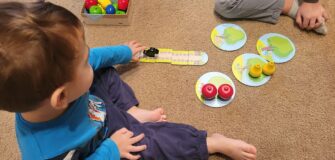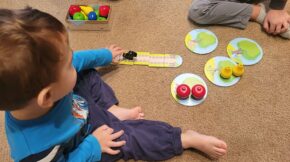Can You Take Dayquil While Breastfeeding? Find All the Answers
Share

Are you a breastfeeding mother struggling with a cold, a sinus infection, or a flu? Feeding your newborn can be quite challenging and physically exhausting with continuous coughing and sneezing. This is when most mothers turn to cold medicines like DayQuil for some relief. But can you take dayquil while breastfeeding?
According to health experts, some drugs can deeply impact your breastfeeding by affecting the milk supply. Moreover, as you breastfeed, the consequences of the drug may pass through your baby. Therefore, you should be really careful while using any kind of medication while breastfeeding.
Before you grab your next dose of dayquil, pause to understand if it is safe for consumption. Can you take dayquil while breastfeeding?
Get a deep understanding of the advantages, consequences, and effects of consuming dayquil while breastfeeding.
What is DayQuil?
DayQuil is a medication that helps reduce and treat the symptoms of colds, flu, and infections. It works as a pain reliever, fever reducer, and cold suppressant to make you feel better. However, dayquil is less likely to make you feel sleepy and drowsy and, thus, is a preferable choice.
Though dayquil is generally a recommended medication; but, can you take dayquil while breastfeeding? Well, you should be absolutely sure of the ingredients that might affect your breastfeeding.
What Does DayQuil Consist Of?
Dayquil is a combination of 3 different medications, which are as follows.
- Acetaminophen (Paracetamol): This is the same active ingredient as in Tylenol. It helps to treat body aches, headaches, and fever.
- Phenylephrine: This is the decongestant.
- Dextromethorphan: This works as a cold suppressant to treat symptoms like running nose and sore throat.
Effects of DayQuil While Breastfeeding

Every medication in dayquil serves a different purpose and, thus, has its own impact on breastfeeding. Some of them are as follows.
1. Acetaminophen (Paracetamol)
It is generally considered safe to consume while breastfeeding. It doesn’t have any severe impacts on the baby or the breastfeeding mother. However, the one thing to care about is to consume it in appropriate dosage as it is easier to overdose on it.
Quick Tip: according to health experts, you should NEVER consume dayquil and Tylenol at the same time, even when not breastfeeding. Besides naturally treating your coughing, it will also deliver many other health benefits.
2. Dextromethorphan
The impact of this drug isn’t clearly specified for breastfeeding mothers and their babies. However, it is generally considered safe for consumption by a breastfeeding mother without any major consequences. It is also recommended to consult with your doctor about its dosage to avoid any health issues for the baby.
Quick Tip: if you want to avoid this drug during breastfeeding, you can use honey which is its natural and more safe alternative.
3. Phenylephrine
This is useful to reduce the nasal decongestant; however, it is one of the most concerning drugs in dayquil. According to health experts, the overconsumption of this drug can have a severe effect on the milk supply. Moreover, it can pass through the breast milk to the baby and, thus, can be concerning for the baby’s health as well.
To be precise, sources indicate that phenylephrine can reduce the milk supply. Additionally, it is also responsible for causing irritability in babies, making them cranky. Moreover, it may also affect the sleep cycle of the babies, and you certainly don’t want that.
Quick Tip: it is best recommended to avoid consuming this drug, especially when breastfeeding, to ensure the best of your and your baby’s health.
Pros of Taking DayQuil
Can you take dayquil while breastfeeding? Well, there is always a dilemma!! However, to ease the decision, let us walk you through some of the pros of consuming it even while breastfeeding:
- This is one of the biggest advantages of consuming small quantities of dayquil as you breastfeed. Dayquil will not make you feel sleepy or drowsy; thus, you can consume it in the daytime without any worries. Thanks to this, you can get relief from your infection while looking after your baby.
- The most evident advantage of taking dayquil is that it instantly makes you feel better and good. It is quite effective in reducing the congestion in infections and sinuses within no time. As a result, it immediately brings relief to the struggling mother to take good care of herself and the baby.
- Moreover, it also is beneficial to reduce body aches, headaches, and sore throat instantly. Overall, you will feel a lot better and energized after consuming dayquil.
- Last but not least; dayquil can also be trusted as it does not cause any other harmful and unwanted health issues and risks. It has no severe impact on any other body part or functioning and thus, can be relied on to get instant relief without any hassles.
Cons of DayQuil
Though dayquil brings instant relief to your congestion and improves your energy levels, it still has some consequences. It affects every mother differently; thus, there are no specific consequences. Some of the possible consequences of Dayquil are as follows.
- If you are under any kind of special medication or suffering from some severe health issue, dayquil is not at all recommended. It may have some side effects on your health, depending upon your health conditions.
- For instance – for some breastfeeding mothers, dayquil can make them nervous and anxious, while some may feel a little sleepy. Thus, you should always be thoughtful of its dose.
- If, by any chance, you consume alcohol, consuming dayquil can even cause liver damage. They both interact very severely and interrupt the normal functioning of the body. Additionally, it is also not recommended to take acetaminophen or any other painkiller as doing so can further damage your liver very badly.
- You should also be careful about dayquil consumption if you are under any special medications. There is a slight chance that both medications may interact with one another to cause severe health issues.
- Though, health issues may vary from person to person and should be taken care of individually. It is, therefore, recommended to have a detailed consultation with your doctor before consuming dayquil with an ongoing medication.
- Last but not least, if you are already struggling with some health issues, taking dayquil is not recommended. People suffering from depression, anxiety, stress, or disorders should avoid consuming dayquil as it can further have severe health issues.
In case of any emergency, you should first consult your health expert to include dayquil and be very sure of the desired quantity.
DayQuil Effects on the Baby

Can you take dayquil while breastfeeding? When thinking about this, do consider the effects of dayquil on your baby’s health as well. Yes, it is not just you that may struggle with health risks and issues, but your baby may also suffer some consequences.
Over-consuming dayquil can have these health effects on your baby.
- One of the most common problems that your baby may face is irritation. The frequent consumption of dayquil can irritate your baby even on slight things. Moreover, your baby can get cranky and may also struggle to sleep peacefully.
- There are also high chance that your baby may get a mild fever as you consume dayquil. This is especially the case for children with weak immunity or who are born prematurely. Therefore, as you consume dayquil while breastfeeding, closely monitor any fever symptoms in your baby to ensure immediate help and doctor’s consultation.
- Dayquil may bring relief to the mother, but it may weaken the immunity of your child, especially when frequently consumed beyond the recommended dose. Due to weak immunity, your baby gets prone to other health issues which may further affect the normal functioning of the body.
- The frequent consumption of dayquil may also affect the digestion of your baby. As your baby’s body and immune system are still not ready to accept the medication, it causes digestion problems. This causes many stomach problems and stomach aches for your baby to deteriorate their health.
- These are also the other health issues that your little baby may face due to the overconsumption of dayquil. Moreover, it further affects the immune system of the baby causing severe health consequences. It also causes discomfort for the baby during sleep.
- Last but not least, dayquil can also cause some skin allergies for your baby. You should be extra careful if your baby has sensitive skin. The common skin allergies that dayquil may cause are rashes, redness, irritation, skin bumps, etc. You should immediately seek an expert’s guidance in such cases.
It should be a conscious and well-thought decision of you and your doctor to include dayquil in your routine especially when you are breastfeeding your baby. You should always be aware of any unusual symptoms or health conditions that may make your baby uncomfortable.
While dayquil is generally considered safe for consumption, it is always better to be prepared for the possible consequences. Thus, it is recommended to consider your and your baby’s health conditions before consuming dayquil as a medication. The frequent consumption of dayquil under any condition is a STRICT NO, even when you are not breastfeeding.
Final Thoughts
So, can you take dayquil while breastfeeding?
A breastfeeding mother can take dayquil once or twice; however, anything more than that can be a bit concerning. It is always recommended to avoid taking dayquil while breastfeeding to avoid any kind of health risk; however, if important, consume only mild quantities. You can always choose natural remedies over dayquil to take care of your cold, cough, and infection.
If you consume dayquil while breastfeeding, don’t panic. Instead, get in touch with your health doctor to discuss your situation or any unknown symptoms for the best help.
If you still need more clarity to understand can you take dayquil while breastfeeding, you can connect with us in the comment section.
Frequently Asked Questions
Should You Stop Breastfeeding with a Cold?
No! You should continue breastfeeding even with a cold without any worries. In fact, many health experts favor breastfeeding with a cold as the antibodies to those germs produced by your body pass through the breastmilk to protect your newborn. You and your baby should continue breastfeeding even in an illness.
Should You Stop Breastfeeding if You Take Dayquil?
If dayquil is taken in very mild quantities, it might not have any severe effect on your breastmilk and the baby. However, if you are taking a good amount, you should first consult your doctor. Your baby may get a little cranky because of the Phenylephrine (the decongestant), but it will not strongly affect your baby.
What are the Safe Alternatives to Dayquil?
Can you take dayquil while breastfeeding? If you are worried about that, you can rely on possibly safe alternatives. Instead of dayquil, you can have honey tea (hot water, lemon, and honey) for coughing, while for congestion, you can take a steamy shower or even a nasal spray. You can also take some Tylenol to reduce fever after consulting with your doctor.
When is it Safe to Resume Taking Dayquil?
Dayquil is not recommended as long as you are breastfeeding your child, as it can affect your milk supply. Moreover, it may also cause irritability in your baby. Thus, it is recommended to resume taking the medication once you are no longer breastfeeding your child. Avoid taking frequent dosages as it may still affect your body’s health.
How to Treat a Cold and its Symptoms While Breastfeeding?
Well, since it is not recommended to take dayquil as a medication, you can always rely on natural and homemade remedies. For example – you can drink warm water, hot soups, steam, honey, nasal sprays, etc. However, if you are allergic to even a natural ingredient, avoid consuming it.















